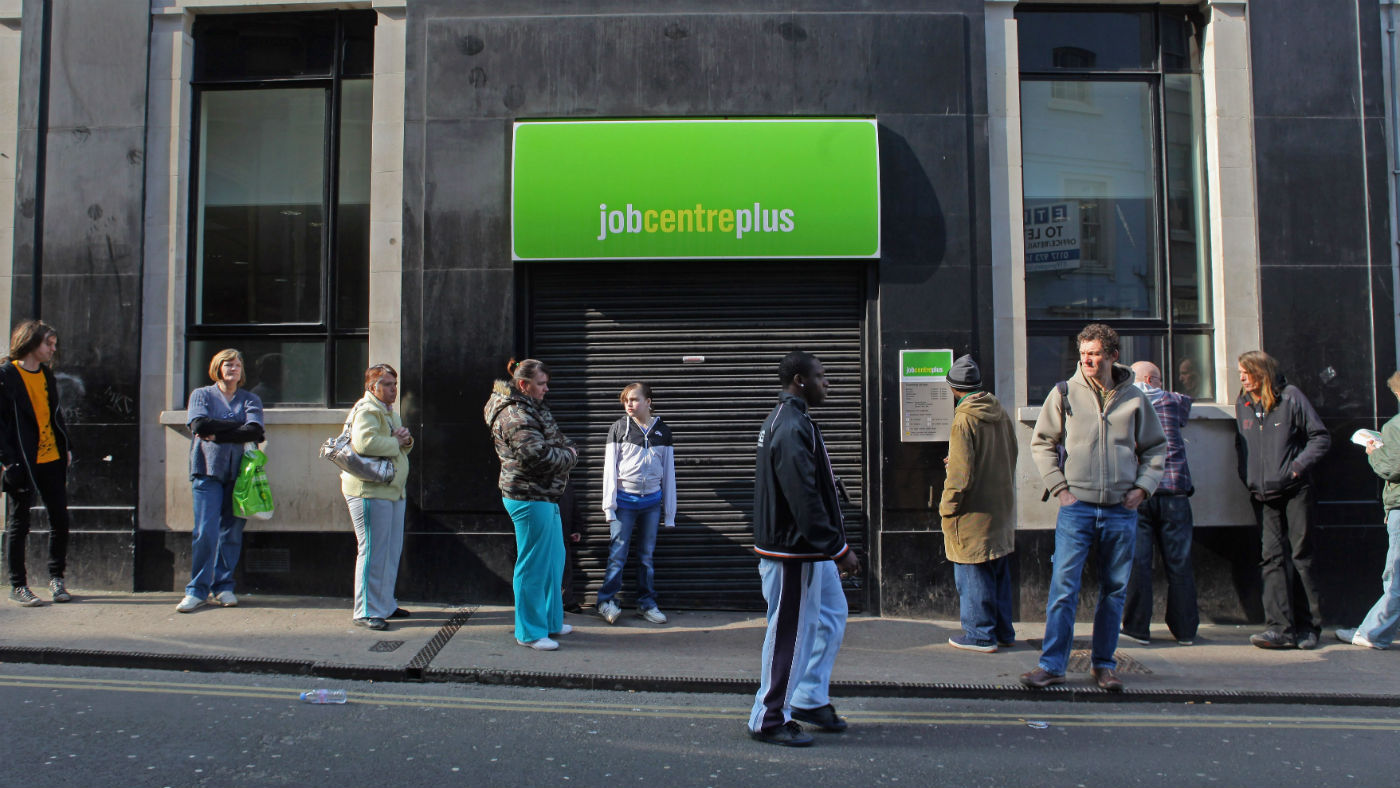Why is in-work poverty on the rise?
New research suggests higher rents and slower wage growth is pushing more working families into relative poverty

A free daily email with the biggest news stories of the day – and the best features from TheWeek.com
You are now subscribed
Your newsletter sign-up was successful
The number of working people living in poverty has risen sharply over the past 25 years, driven in part by higher rents and slower wage growth, research from the Institute for Fiscal Studies (IFS) has revealed.
The IFS report, commissioned by the Joseph Rowntree Foundation, estimates almost a fifth of working households are affected by relative poverty - defined as a household income lower than 60% of median income – meaning it afflicts around eight million people in Britain.
Xiaowei Xu, one of the authors of the research, said the gradual rise - from 13% in the mid-1990s to 18% in 2017 - “are the result of complex trends”.
The Week
Escape your echo chamber. Get the facts behind the news, plus analysis from multiple perspectives.

Sign up for The Week's Free Newsletters
From our morning news briefing to a weekly Good News Newsletter, get the best of The Week delivered directly to your inbox.
From our morning news briefing to a weekly Good News Newsletter, get the best of The Week delivered directly to your inbox.
Two key reasons “are steeper housing costs for the low-paid, including higher rents and lower housing benefits, and much slower growth in their earnings compared with higher earners”, according to The Independent.
“On the other hand, many in the previously jobless groups, such as lone parents, have moved into low-paid work, pushing up the rate despite becoming themselves better-off,” says the newspaper.
The Guardian’s economics editor Larry Elliott says: “Another development of the past quarter century – the rapid growth in pensioner income – had also been a factor in concentrating poverty in working households because the impact had been to push up both median income and the relative poverty line.”
On Wednesday, as Theresa May defended her legacy at Prime Minister’s Questions in the House of Commons, she faced accusations from the Scottish National Party that in-work poverty has risen dramatically during her watch despite her promises to fight for the “just about managing”.
A free daily email with the biggest news stories of the day – and the best features from TheWeek.com
Citing a separate UN report examining poverty in the UK over the past decade, Bloomberg reports that “in-work poverty has scarred the UK since the financial crisis, the result of years of wage stagnation and cuts to benefits as the government sought to bring down the budget deficit”.
Another report from the Joseph Rowntree Foundation, published last year, claimed more than half a million British workers have been swept into working poverty over the past five years.
The Guardian said it was “the latest sign that the link between entering work and making ends meet has become increasingly frayed in 21st-century Britain”.
“Nearly all of the increase comes as growing numbers of working parents find it harder to earn enough money to pay for food, clothing and accommodation due to weak wage growth, an erosion of welfare support and tax credits and the rising cost of living,” says the newspaper.
The growing number of in-work poor will raise further questions about record levels of employment. Unemployment has dropped to its lowest level since the 1970s, but this includes underpaid or precarious job roles.
Campbell Robb, chief executive of the Joseph Rowntree Foundation, told the BBC: “Our economy should work for everyone, but the rise of working poverty across the UK shows that success in increasing employment isn’t always a reliable route to a better living standard.
“High housing costs, low pay and insecure hours are holding many people back, despite more people moving into work. Our next prime minister must further reform Universal Credit so that it helps more people get on, and bring forward an ambitious plan to rebalance the economy by investing in places where low employment and widespread low pay trap people in poverty.”
May claimed that the IFS report “shows that people are better off when they move into work”.
She told MPs: “It shows that under this Government, more people are in work than ever before, that material deprivation rates have fallen by a fifth since 2010, and that the reason for the relative poverty figures is that pensioners are better off.”
-
 Tourangelle-style pork with prunes recipe
Tourangelle-style pork with prunes recipeThe Week Recommends This traditional, rustic dish is a French classic
-
 The Epstein files: glimpses of a deeply disturbing world
The Epstein files: glimpses of a deeply disturbing worldIn the Spotlight Trove of released documents paint a picture of depravity and privilege in which men hold the cards, and women are powerless or peripheral
-
 Jeff Bezos: cutting the legs off The Washington Post
Jeff Bezos: cutting the legs off The Washington PostIn the Spotlight A stalwart of American journalism is a shadow of itself after swingeing cuts by its billionaire owner
-
 Is $140,000 the real poverty line?
Is $140,000 the real poverty line?Feature Financial hardship is wearing Americans down, and the break-even point for many families keeps rising
-
 Is it time for Britons to accept they are poorer?
Is it time for Britons to accept they are poorer?Today's Big Question Remark from Bank of England’s Huw Pill condemned as ‘tin-eared’
-
 How the government-backed interest-free loans work
How the government-backed interest-free loans workfeature Expanding scheme offers up to £2,000 for those in financial need
-
 Labour shortages: the ‘most urgent problem’ facing the UK economy right now
Labour shortages: the ‘most urgent problem’ facing the UK economy right nowSpeed Read Britain is currently in the grip of an ‘employment crisis’
-
 Will the energy war hurt Europe more than Russia?
Will the energy war hurt Europe more than Russia?Speed Read European Commission proposes a total ban on Russian oil
-
 Will Elon Musk manage to take over Twitter?
Will Elon Musk manage to take over Twitter?Speed Read The world’s richest man has launched a hostile takeover bid worth $43bn
-
 Shoppers urged not to buy into dodgy Black Friday deals
Shoppers urged not to buy into dodgy Black Friday dealsSpeed Read Consumer watchdog says better prices can be had on most of the so-called bargain offers
-
 Ryanair: readying for departure from London
Ryanair: readying for departure from LondonSpeed Read Plans to delist Ryanair from the London Stock Exchange could spell ‘another blow’ to the ‘dwindling’ London market